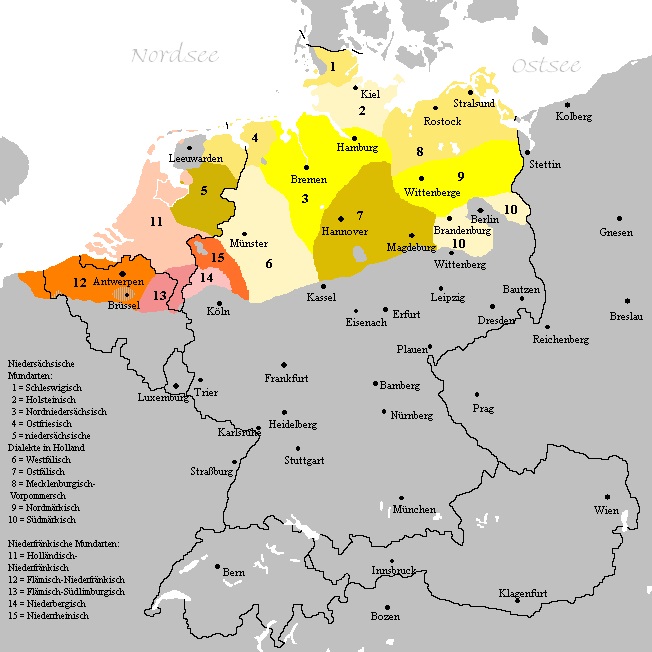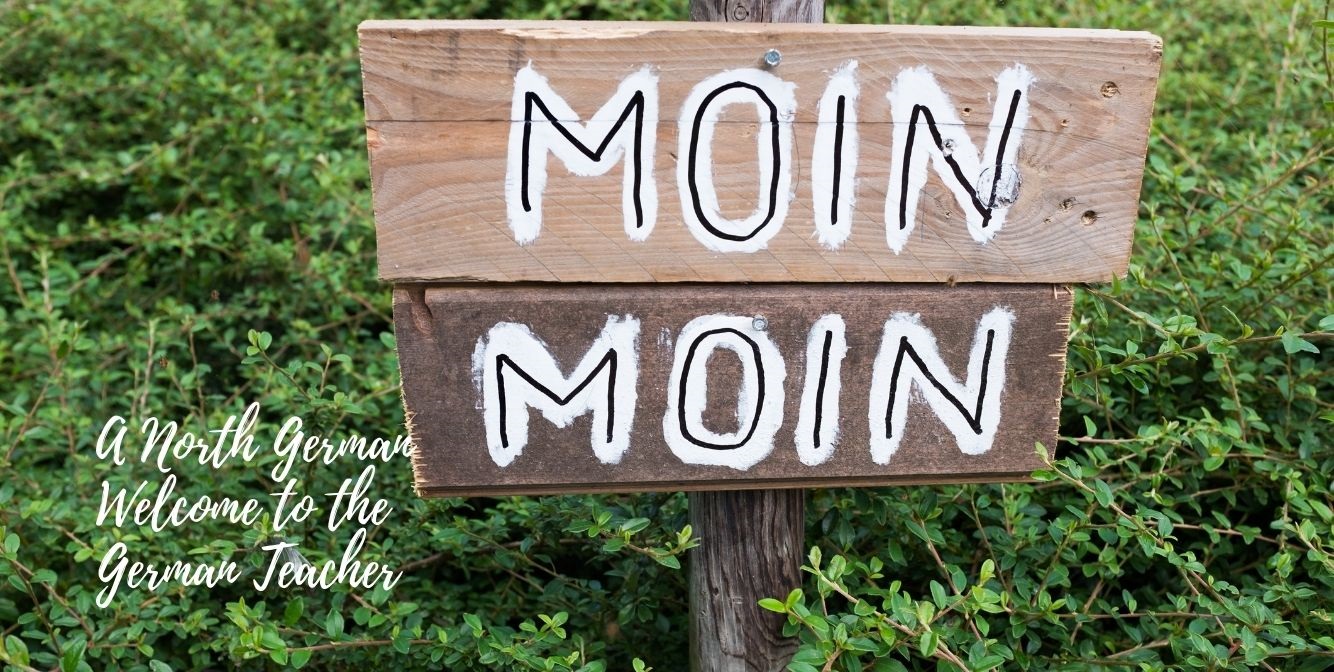Plattdeutsch? If you have ever been in the North of Germany, you will have heard Moin, Moin instead of the more formal Guten Morgen or Morgen – all meaning “Good morning”. Strangely enough, this is being said at any time of the day or even in the evening as a greeting.
Moin, Moin and welcome to the first blog of the German teacher!
Plattdeutsch – an introduction

It is part of the North German dialect, the so-called Plattdeutsch or low German dialect which is still spoken by 2.5 Million people in the North. Especially in the last few years, there has been a real revival of the dialect, particularly among young people. I grew up with my grandtather speaking the dialect in the house and to this day it feels homely hearing it. He would tell me stories about how he did talk to his classmate sitting on his left in Hochdeutsch and to the one on the right in Plattdeutsch. Sometimes he would even translate for the teacher.
The Institut für Niederdeutsche Sprache (Institute for the Low German Dialect) organizes every year a competition for bands, the so-called Plattsounds and many schools run reading competitions.

In the middle ages Plattdeutsch was the main language for the North of Germany, especially between the Hansestädte (hanseatic cities) of Hamburg, Bremen, Rostock and Lübeck. Therefore, it was an important language for trade.
Over the past two centuries the so called Hochdeutsch (high German or standard German) became dominant and this is the German you are taught when you learn the language.
Where is the low German dialect spoken?

On this Wikipedia map you can see the areas of Germany which speak a variation of Plattdeutsch. Here are some expressions in the dialect compared to standard German:
| das Mädchen | de Deern | the girl |
| das Pferd | dat Peerd | the horse |
| das Haus | dat Huus | the house |
| Er steht vor dem Haus. | He steiht vör dat Huus. | He stands in front of the house. |
| Der Sonnenschein | De Sünnschien | the sunshine |

German music is very popular in Germany right now with many fabulous singer/song writers and bands. Why is this important? For a very long time English songs dominated the radio and all German music was music just for the older generation.
Popular German music groups like SANTIANO now also sing in Plattdeutsch. Here is one example: Santiano singing Knut Kiesewetter’s Fresenhof.
With my roots firmly in North Germany and my family in Germany and Britain, it has been an exciting language journey. To bring both languages and cultures together and to teach the German language and culture to a wide variety of students and businesses has been a pleasure so far!
Kiek mal wedder in (Schau mal wieder rein – Come and visit again)!

We are active on social media. Please do connect on Facebook, LinkedIn, Instagram and Twitter.

